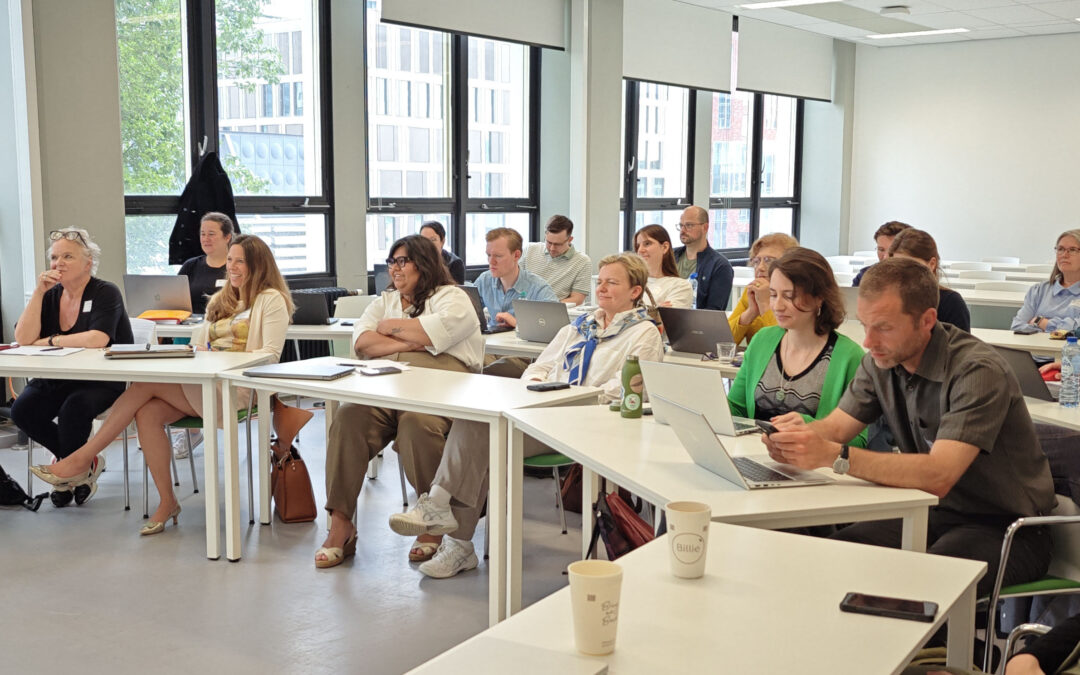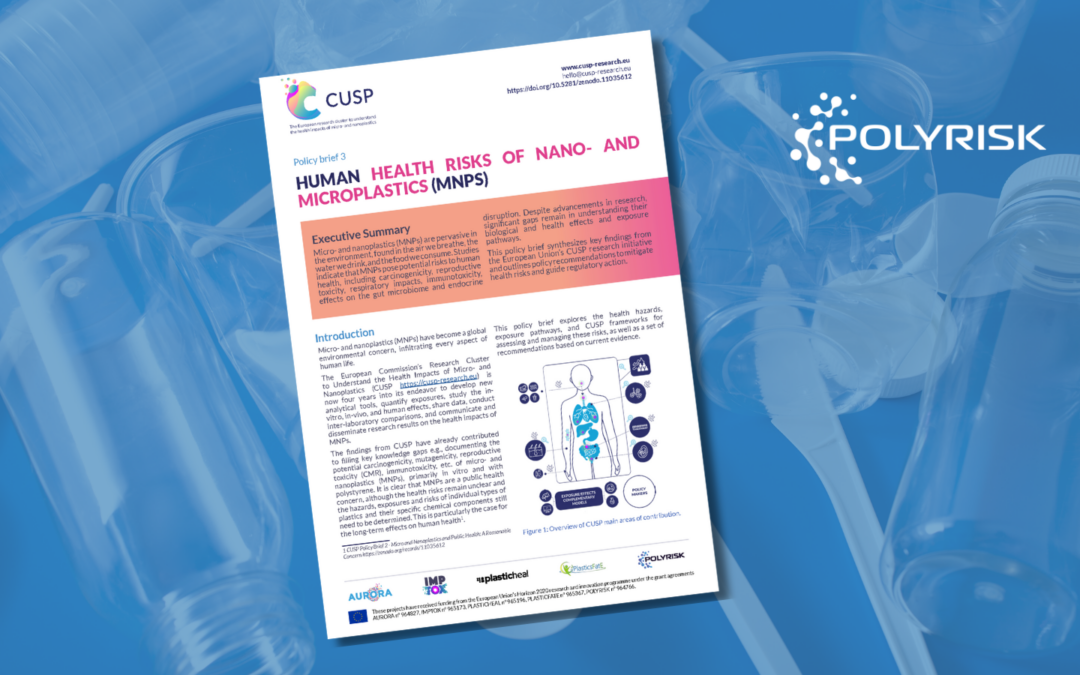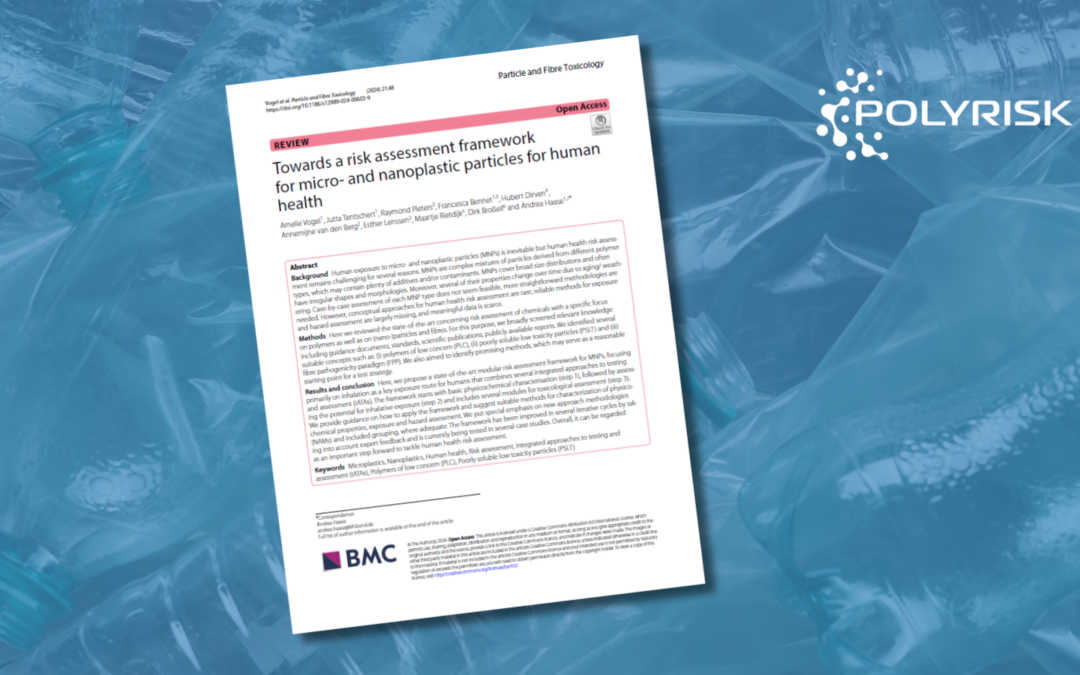
Representatives from national health institutes, civil society, and industry joined POLYRISK scientists to discuss micro- and nano plastics and their health impacts.

Researchers across Europe released their final policy brief calling for stronger regulation, increased funding, and initiatives to raise public awareness to protect people from plastics.

By creating a comprehensive state-of-the-art risk assessment framework, POLYRISK researchers are providing a tool to examine MNPs that are of potential concern for human health.

Meet Annemijne van den Berg, PhD researcher at the Institute of Risk Assessment Sciences, Utrecht University and learn more about how her research sheds light on the health impacts of MNPs.

Watch the recording of our latest webinar with EDC Strategies Partnership to learn more about the latest science on the health impacts of micro- and nanoplastics.

The publication highlights key findings from CUSP’s research into the health implications associated with micro- and nanoplastic particles and underscores the importance of addressing this emerging public health concern.






